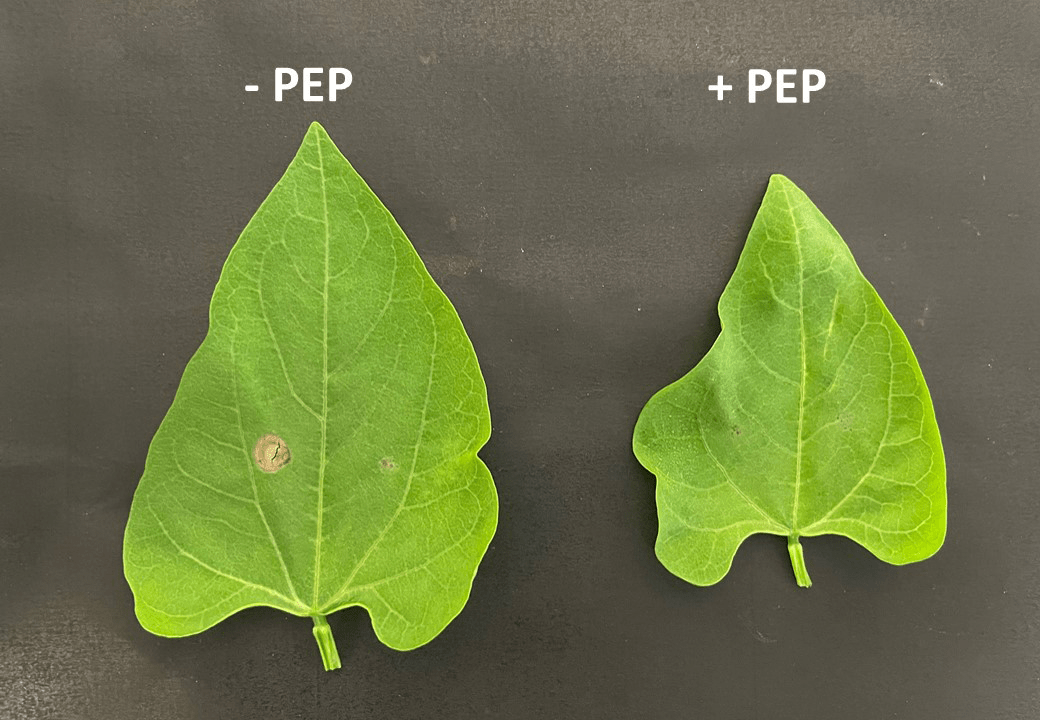| Jean-Philippe Combier |
| Short peptides to replace chemicals in agronomy |
The current agriculture main challenge is to maintain food production while facing multiple threats such as increasing world population, temperature increase, lack of agrochemicals due to health issues and uprising of weeds resistant to herbicides. Developing novel, alternative, and safe methods is hence of paramount importance. Here we show that complementary peptides (cPEPs) from any gene can be designed to target specifically plant coding genes. External application of synthetic peptides increases the abundance of the targeted protein, leading to related phenotypes. Moreover, we provide evidence that cPEPs can be powerful tools in agronomy to improve plant traits, such as growth, resistance to pathogen or heat stress, without the needs of genetic approaches. Finally, by combining their activity they can also be used to reduce weed growth.
Title of the article: Complementary peptides represent a credible alternative to agrochemicals by activating translation of targeted proteins.
List of authors: Mélanie Ormancey†, Bruno Guillotin†, Rémy Merret, Laurent Camborde, Carine Duboé, Bertrand Fabre, Cécile Pouzet, Francis Impens, Delphi Van Haver, Marie-Christine Carpentier, Hélène San Clemente, Marielle Aguilar, Dominique Lauressergues, Lars B. Scharff, Carole Pichereaux, Odile Burlet-Schiltz, Cécile Bousquet-Antonelli, Kris Gevaert, Patrice Thuleau, Serge Plaza, Jean-Philippe Combier
Citation: Nature Communications. 2023. 14:254.
Url: https://www.nature.com/articles/s41467-023-35951-0
Laboratory: Laboratoire de Recherche en Sciences Vegetales
City: Auzeville Tolosane
Country: France
Comments: This work follows our previous work on the identification of miPEPs (Lauressergues et al., 2015, Nature) and the creation of Micropep Technologies to valorize our works.



